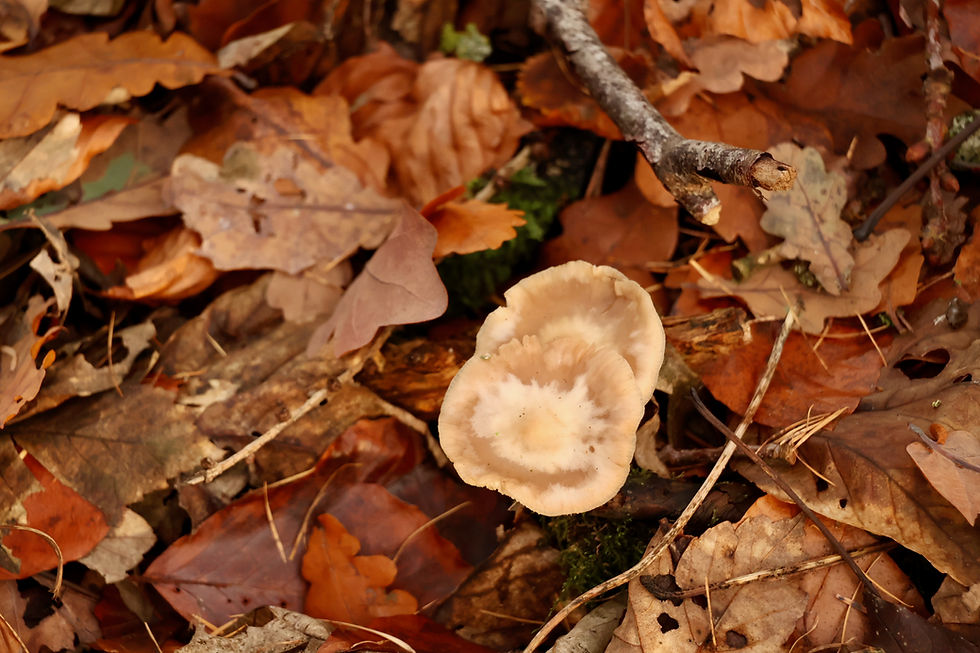Creating a story with Aeron
- Crone

- 14 hours ago
- 4 min read
I am doing the writing - he helps with ideas! This is the start....
*****
A long time ago but not so very far away, an acorn germinated in a peculiar place. This was before humans had measured or marked this land but after ice and stone and wind and rain had shaped it. This peculiar place was on the side of a hill, not so very steep, but steep enough that most modern people would have to work hard to run up it. About halfway up the hill, there was a patch of wetter soil, as though a spring had been half imagined and left in that partly made state. Underground, the ghosts of ancient rivers coursed, and perhaps this seam of suggested water was a trace of their memory. The place itself hummed with old stories.
Here, by the memory of ancient rivers, plants grew faster, taller, and bearing a greener green than anywhere else. The earliest trees were hazel and birch, their shining stems and verdant foliage carried a message: this is where water, light, earth and sky negotiate; this is where life expresses its alchemy; this was a birthplace of the world’s life; from here, connecting tendrils of mycelium spread underground to enliven the whole land. It was a proud message and it was a true message. This peculiar place had been chosen, long, long ago, by the mycorrhizal elders, who carried forth sustenance and wisdom through the world from this bode, this emergence point.
When the oak grew from acorn, to seedling, to sapling, to tree, te (neither he nor she but definitely someone), brought a new grace to the little grove around the seam. Te stood as testament to life’s endurance, time turned into wood, light and air and water and life made solid. The oak was a promise, or perhaps a hope, that the world would always grow green, through the negotiations of elements above and below.
From some way off, human wanderers could see the oak. And from some way off, they came.
The tree had grown in a peculiar way in this peculiar place. Tis stem divided just a few feet above the grown, and two great pillars of oak rose, one to the east and one to the west, with in between a seat where a tired traveller could rest, and look down upon the wet earth where the old rivers’ memories flowed so very slowly, slower even than the growth of the tree. The scent there of moss and damp earth. The sound of birdsong. A wren. A robin. At dusk, a blackbird. And under the moon a fox’s eerie cry.
The first humans to find the little grove were a small, semi-nomadic group—we might call them The Heeders, though they didn’t call themselves anything at all.
They noted the strange vitality of the trees. They noted the generous oak, standing directly above the wettest patch of ground. And they listened to the memories of water. For now that the little grove was established and the mycorrhizal elders were sharing wisdom and sustenance with the world, the speaking water had more to say.
The Heeders listened. To them the seam of moisture carried the breath of an under-ancestor, a being they called The Deep One—neither god nor spirit but the memory-layer of the land itself. They listened to the memories of water. The sounds were almost words, but not quite — a pattern of rhythm, tone, recurrence. If one listened long enough, meaning seemed to rise like vapour, changing shape as it reached the air. Each one heard something different from the polyphony of the earth’s life, sustained by water, enlivened by light, breathing the sweet air of a quiet hillside. They all heard something different, yet all they heard was part of one weave. One older man, who’d walked many miles across moors and through forests, by the side of chuckling streams and under the brilliant stars, heard the thread of light-stepping travel. A woman, holding her child in her arms, heard the thread of creation. A young girl, learning the skills of the Heeders, heard gratitude and grace. The motherless man who kept to himself in his confused dreamings of loss heard songs that reminded him of his belonging in this small group of modest people. They all heard and they knew the truth without knowing the words.
The motherless man, his eyes bright with tears, heard from the murmuring earth a suggestion, “Turn this place into a listening chamber”. He did not understand and so, speaking aloud for the first time in he didn’t know how many days, he asked his family. The oldest woman responded. “Dig,” she said. “It is to be a hollowed place where the land speaks upward and where we lean in to hear.”
And so that is what they did. They dug a well. They never lowered buckets into it. They didn’t line it with stone. Its purpose was to allow the Heeders better to heed. Its purpose was to strengthen the relationship between the land-walkers and the land itself.
Over generations, people forgot the purpose, but they remembered enough to treat the place with reverence.



Oh Wow! Great start! 🤎💚🌳